

KENNESAW, Ga. | Nov 21, 2023
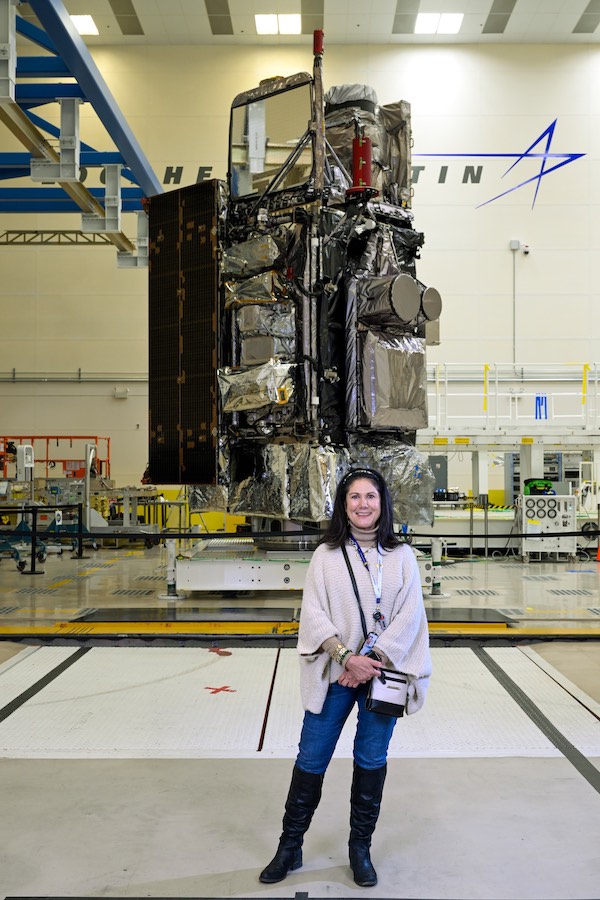
She applied and was accepted to Southern Polytechnic State University, now Kennesaw State University. That choice launched Gandy’s career in rocket science and down a path in life that she is reflecting on as she prepares for her final satellite launch and then retirement.
When Gandy was an SPSU computer science student, she needed a job to help pay her bills. Since Lockheed Martin was across the street from campus, she applied there and was hired on as a student assistant.
“The first time I entered the Lockheed Martin Aerospace BI building, I felt a little funny,” Gandy said. “I couldn’t put my finger on it. Then I realized I was the only woman in sight. Now, almost 30 years later, there are more women in aerospace, but the workforce is still mostly men.”
Gandy credits much of her success to her former professor, Bob Harbort.
“Dr. Harbort took me under his wing,” Gandy said. “He had this long, white, incredible beard and looked nothing like what one might expect. But he saw the potential in me and just pushed me to go farther.”
Gandy graduated in December 1999 and was hired to work full time at Lockheed. Eventually, she was transferred to Lockheed Martin Space in Littleton, Colorado and assigned to the Geostationary Operations Environmental Satellites (GOES) program.
“My former missions operation manager called me and said she needed some surge help in Littleton,” Gandy said. “Surge is what they call the person who comes in and helps get them out of a really sticky bind where they don’t have enough manpower. I came in, helped, they gave me a promotion and asked me to stay.”
Currently, there are a series of three GOES weather satellites sitting in geosynchronous orbit over the Earth. All of which use intricate onboard instruments that watch specific weather patterns. The GOES satellites track hurricanes, lightning strikes, and forest fires, and they also measure ocean temperatures. Gandy says the GOES satellites are even credited for picking up a 2022 volcanic explosion in the Pacific.
Gandy writes computer software for the GOES U satellite and would challenge anyone who minimizes the importance of her education, her background, and her role.
“I work on the flight software that makes the thing fly,” Gandy quipped. “It doesn’t matter how many billions of dollars you spend on all these instruments, it’s a hunk of junk unless you’ve got flight software. Period.”
Despite the advancements made in gender equality since she began her career and more women entering computing science and engineering fields, Gandy said she still encounters gender bias.
“With everything, they are biases,” Gandy said. “There are many times when I am talking with a man, and I get the ‘mansplain’ thing. But I just think to myself, that’s their issue and their bias.”
Gandy is also heavily involved in the testing phase of the satellites, which includes a months-long thermal vacuum testing period in which the satellite is placed in a chamber that mimics the full range of temperature and pressure changes as well as vibrations that are expected in space.
“What I’m involved in is just an amazing thing. Hundreds of people get together, and you end up with a product like this,” Gandy said.
The fourth and final weather satellite in the GOES series, GOES U, is currently scheduled to launch in April 2024. In addition to the instruments the previous GOES satellites had on board, GOES U will have a compact coronagraph (CCOR) instrument that will take pictures of the sun’s corona for space weather observation. The initial integration and test of the CCOR software using the CCOR instrument emulator has been Gandy’s responsibility. After the launch, Gandy will retire.
“It’s the last spacecraft in this series that’s going to launch, and it seemed like a good time to exit the program,” Gandy said. “I’m in my mid-sixties and ready to go enjoy life after this. But I’m really proud of how it’s all turned out.”
Gandy will end her career with no regrets about the path she chose.
“There were times I thought maybe I’m reaching too far, reaching too high, or trying to get ahead of myself,” Gandy said. “But I stuck with it. And I say this now: don’t let those negative thoughts encroach on your dream. Remember it’s never too late to be what you might have been. You’re not on a timeline. If you have a dream, a goal, you want to accomplish something, you need to just step out there and do it.”
– By Amanda Cook
Photos Submitted
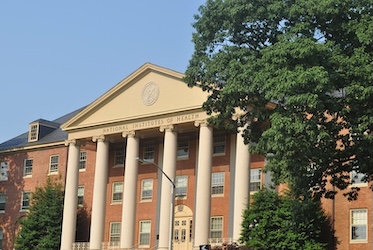
Alumnus builds career in biomedical research at the National Institutes of Health
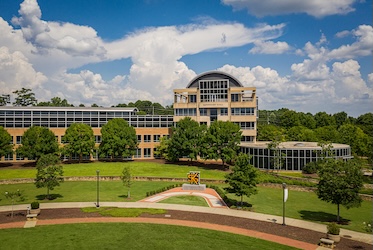
Kennesaw State president, alumni, and donors named to Atlanta 500 list
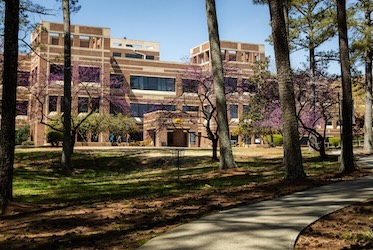
Kennesaw State University to launch Bachelor of Science in Artificial Intelligence in Fall 2026
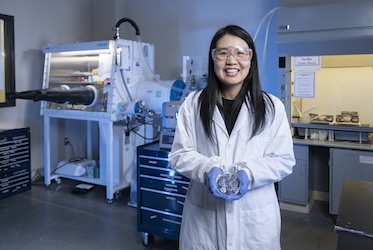
Kennesaw State researcher develops safer, faster solid-state battery design
A leader in innovative teaching and learning, Kennesaw State University offers undergraduate, graduate, and doctoral degrees to its more than 51,000 students. Kennesaw State is a member of the University System of Georgia with 11 academic colleges. The university's vibrant campus culture, diverse population, strong global ties, and entrepreneurial spirit draw students from throughout the country and the world. Kennesaw State is a Carnegie-designated doctoral research institution (R2), placing it among an elite group of only 8 percent of U.S. colleges and universities with an R1 or R2 status. For more information, visit kennesaw.edu.